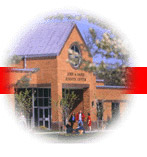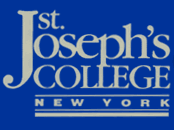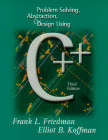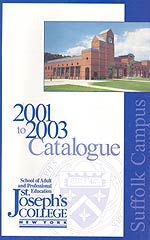Spring 2003 Trimester
St. Joseph's College
School of Adult & Professional Education
Accelerated Weekend College
Dept. of Mathematics & Computer Science



COM 152 - Computer Programming
Spring 2003 Trimester
St. Joseph's College
School of Adult & Professional Education
Accelerated Weekend College
Dept. of Mathematics & Computer Science

| INSTRUCTOR: | Bruce A. Martin | |
| EMAIL: |
bam.sjc@tripodics.com

| |
| OFFICE HOURS: | After class, and by appointment. | |
CLASS HOURS:

| Schedule "C"
(on scheduled weekends, only) · Saturdays: 12:15-3:00pm 1/11, 1/25, 2/22, 3/14, 4/5 4/26 · Sundays: 8:30-11:15pm 1/12, 1/26, 2/23, 3/15, 46, 4/27 | |
| REQUIRED TEXTBOOK: |
Problem Solving, Abstraction, Design - Using C++ by Frank L. Friedman & Elliot B. Koffman 
|

(Contents) |
| REQUIRED SOFTWARE: (for home use) | Borland C++
 Version 5.02
Version 5.02

Also required: Blank floppy diskettes | |
CATALOG DESCRIPTION:

|
An introduction to the concepts underlying computer science and programming,
such as:
abstraction, analysis, modularity, and structured programming.
Emphasis is on algorithm development,
and the use of structured program design techniques
in solving problems.
Students will develop programs using the synatax and semantics of a higher-level language (e.g. C++). Searching, sorting, and recursive algorithms are introduced. (Corresponds to ACM "CS1".) | |
| PREREQUISITE: | COM 140 or COM 150 or departmental approval based upon prior programming experience. | |
| CREDITS: | 3 | |
COURSE OBJECTIVES:

|
What you will learn in this course
should provide a strong technology foundation
for employing the computer as a tool
and programming it to perform useful tasks,
regardless of whatever career you choose.
Following is a list of specific objectives
we hope to achieve:
| |
TOPICS COVERED:
 


|
| |
PROGRAMMING ASSIGNMENTS:
|
Various programming assignments will be given during the semester.
Some of these programs will build upon previous assignments Submitted programs must compile without error using the aforementioned compiler, and must execute to completion (without any run-time errors), to produce the expected results. | |
College policy regarding plagarism.
College policy regarding disabilities.